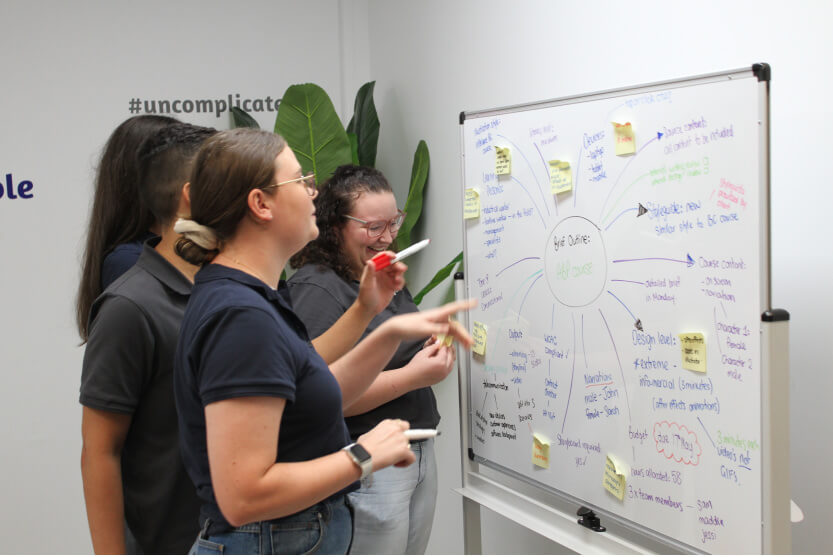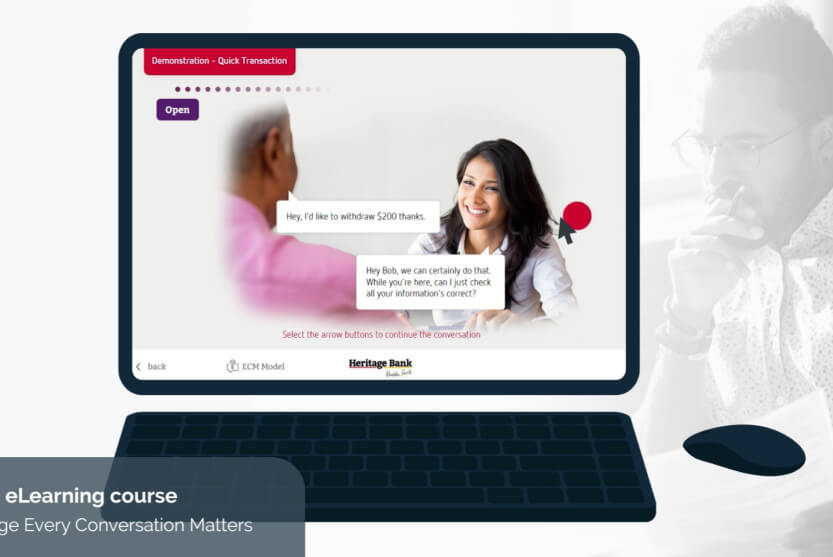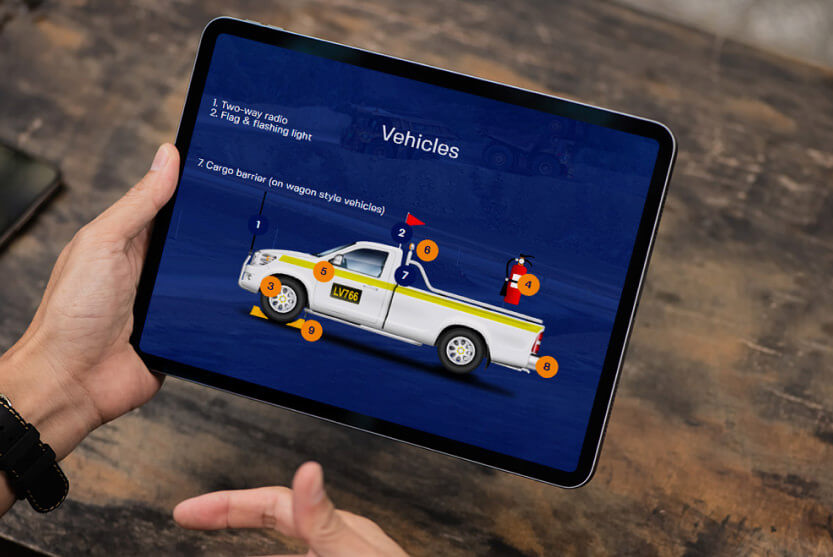In today’s dynamic workplace, businesses need training programs that aren’t just effective but also aligned with their specific goals and challenges. That’s where custom eLearning course development comes in. Unlike off-the-shelf solutions, custom eLearning courses are tailored to address unique needs, offering organisations a competitive edge in workforce training.
In this guide, we’ll walk you through the process of custom eLearning course development and highlight why it’s the future of corporate training.
Why Choose Custom eLearning?
Custom eLearning offers a personalized approach to training that off-the-shelf solutions simply can’t match. By tailoring courses to fit your organisation’s unique needs, you can ensure the training is both relevant and impactful. Custom eLearning allows you to:
- Address Specific Skills Gaps: Tailored courses focus on the exact competencies your employees need to improve, whether it’s technical skills, compliance, or soft skills.
- Reflect Company Branding and Culture: You can integrate your company’s values, tone, and visual identity, helping employees connect with the content and reinforcing your organisational culture.
- Adapt to Different Learning Preferences: Custom eLearning courses can be designed to suit various learning styles, such as interactive modules for kinesthetic learners or video content for visual learners.
- Incorporate Industry-Specific Scenarios: Real-world examples and case studies make the learning more applicable and effective, helping employees apply what they’ve learned directly to their roles.
This personalised approach not only drives higher engagement but also improves retention, as employees are more likely to absorb and apply knowledge that’s directly relevant to their roles. Ultimately, custom eLearning is a strategic investment that can lead to measurable improvements in performance and business outcomes.
The Steps in Custom eLearning Course Development

1. Define Training Objectives
Start by setting clear, measurable goals for the course. Whether it’s improving specific skills or achieving compliance, these objectives guide content development. A well-defined goal ensures the course remains focused and relevant. This clarity enhances the learning experience for your employees.
2. Identify Your Audience
Understanding your learners is key to creating relevant content. Factors like job roles, experience levels, and learning preferences should guide the course design. A mining crew might benefit from hands-on simulations, while a sales team could prefer interactive scenarios.


3. Collaborate with Subject Matter Experts (SMEs)
SMEs provide critical insights to ensure accuracy and relevance in the course content. Their expertise helps align training with industry standards and real-world practices. Collaborating with SMEs makes the course more actionable and valuable. It ensures your training addresses the right skills and challenges.
4. Create Engaging Content
To keep learners motivated, design content that is interactive and varied. Incorporate storytelling, gamification, and multimedia like videos and quizzes. Engaging content fosters deeper learning and better retention. The goal is to make training enjoyable, which leads to improved performance.


5. Leverage Modern Tools and Platforms
Use the latest Learning Management Systems (LMS) to deliver the course efficiently. These platforms provide tracking, feedback, and certifications, making the learning process seamless. The right tools also ensure content is accessible on various devices. This flexibility supports learners’ preferences for mobile and on-demand learning.
6. Test and Refine
Before launching, pilot the course with a small group of learners. Gather feedback on clarity, usability, and engagement. Use this feedback to make necessary adjustments and improve the content. Refining the course ensures it meets the needs of the broader workforce before full deployment.

Benefits of Custom eLearning Course Development
1. Tailored Solutions
Custom eLearning aligns with your organisation’s unique challenges, industry-specific requirements, and learning objectives, ensuring content is highly relevant and effective for your team.
2. Increased Engagement
Interactive and personalised content—such as gamified modules, role-based scenarios, and real-world simulations—keeps learners motivated and enhances knowledge retention, making the training experience enjoyable and impactful.
3. Better ROI
Custom eLearning eliminates unnecessary content and focuses on your specific needs, leading to measurable improvements in productivity, employee performance, and retention rates—all while optimising training costs.
4. Scalability and Accuracy
These courses can evolve alongside your organisation, whether you’re onboarding new employees, addressing compliance updates, or launching new training initiatives. The adaptability ensures your training remains future-proof.
5. Compliance and Accuracy
In industries with strict regulations, custom eLearning ensures that all content aligns with legal and industry standards, reducing risks and maintaining accountability. This meticulous approach boosts confidence in your training programs.

Simply eLearning: Your Partner in Custom Training
At Simply eLearning, we specialise in crafting tailored training solutions that drive real results. Whether you’re in telecommunications, construction, or mining, we design courses that resonate with your workforce and align with your goals. From interactive compliance modules to leadership training, we deliver solutions that engage, educate, and empower.
Conclusion
Custom eLearning course development is more than just a training option—it’s a strategic investment in your team’s growth and your organisation’s success. By prioritising personalisation, innovation, and relevance, you can transform how your employees learn and perform.
Ready to elevate your training programs? Contact Simply eLearning today and let’s create a custom eLearning solution tailored to your needs.
